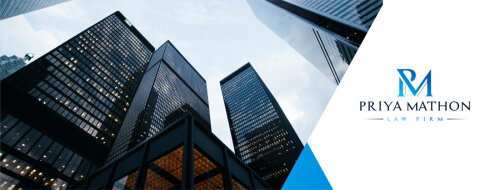Best Mortgage Lawyers in New York
Share your needs with us, get contacted by law firms.
Free. Takes 2 min.
Free Guide to Hiring a Real Estate Lawyer
Or refine your search by selecting a city:
List of the best lawyers in New York, United States
About Mortgage Law in New York, United States
Mortgage law in New York governs the process of buying, refinancing, and foreclosing on property using loans secured by real estate. A mortgage is a legally binding agreement in which a borrower gives a lender an interest in real property as collateral for a loan. New York operates primarily under a judicial foreclosure system, which means the courts are involved in the foreclosure process if a borrower defaults on their mortgage payments. Mortgage law in the state is shaped by statutes, regulations, and court decisions, all designed to protect homeowners, buyers, lenders, and investors.
Why You May Need a Lawyer
Legal advice is often necessary for anyone dealing with mortgage-related issues in New York. Common situations where legal help is valuable include:
- Reviewing and negotiating mortgage agreements to ensure fair terms
- Assistance with buying or refinancing a home
- Representing you during foreclosure proceedings
- Resolving disputes with mortgage servicers or lenders
- Securing loan modifications or seeking relief under federal or state mortgage relief programs
- Helping with short sales, deed in lieu of foreclosure, or bankruptcy filings related to your mortgage
- Settling questions about title, liens, and property taxes associated with your mortgage
- Understanding your rights and obligations under New York mortgage law
Local Laws Overview
New York has several key laws and regulations impacting mortgages:
- Judicial Foreclosure Requirement: New York requires lenders to file a lawsuit to foreclose on a property, giving homeowners more time and notice before losing their home.
- 90-Day Pre-Foreclosure Notice: Lenders must provide homeowners with a 90-day notice before starting foreclosure proceedings, allowing borrowers time to seek help or remedy the default.
- Settlement Conference: Residential borrowers are entitled to a court-mandated settlement conference where they can negotiate alternatives to foreclosure, such as loan modification or repayment plans.
- Consumer Protection Statutes: State laws such as the New York Home Equity Theft Prevention Act protect homeowners from predatory lending and foreclosure rescue scams.
- Deficiency Judgments: New York allows lenders to pursue a deficiency judgment if the foreclosure sale does not cover the full mortgage debt, but certain protections apply for homeowners.
- Mortgage Recording Tax: The state imposes a mortgage recording tax on new mortgages, refinances, and certain modifications, which must be considered in closing costs.
Frequently Asked Questions
What is a mortgage and how does it work in New York?
A mortgage is a loan secured by real estate. In New York, when you sign a mortgage, you give the lender the right to foreclose on your property if you default on payments. The lender records the mortgage with the county clerk.
What is judicial foreclosure?
Judicial foreclosure is a process where the lender must go to court to foreclose and take possession of your home if you default. In New York, the process can take several months to years, giving homeowners time to respond or seek alternatives.
How much notice does a lender have to give before foreclosing?
Before initiating foreclosure, the lender must provide at least a 90-day written notice to the borrower. The notice must include information on how to avoid foreclosure and resources for assistance.
Am I entitled to a settlement conference?
Yes, most residential borrowers in New York are entitled to a court-mandated settlement conference. This is an opportunity to discuss foreclosure alternatives with your lender, often with the help of a mediator or judge.
What is a deficiency judgment?
If the foreclosure sale price is less than the mortgage balance, the lender may seek a deficiency judgment for the remaining amount. New York law provides some protections, and courts have discretion when granting these judgments.
Can I stop a foreclosure in New York?
Foreclosure can sometimes be stopped by paying the overdue amount, entering into a loan modification, seeking bankruptcy protection, or through negotiated agreements like a short sale or deed in lieu of foreclosure.
What are my rights as a homeowner facing foreclosure?
You have the right to receive proper notice, participate in a settlement conference, access loss mitigation options, and be free from unlawful or deceptive practices during the foreclosure process.
What fees and taxes apply to new mortgages?
New York imposes a mortgage recording tax, which varies by county and loan amount. Additional closing costs may include title insurance, attorney fees, and loan origination fees.
What should I consider before refinancing my mortgage?
Consider interest rates, potential closing costs, changes to loan terms, prepayment penalties, and whether refinancing will reduce your overall financial burden. A lawyer can help review your new mortgage documents.
How can I find reputable mortgage relief or counseling services?
Seek help from HUD-approved housing counseling agencies, local legal aid organizations, or speak with an attorney who specializes in mortgage law. Avoid working with companies that guarantee a loan modification for an upfront fee.
Additional Resources
Several governmental and nonprofit organizations provide guidance for people dealing with mortgage issues in New York:
- New York State Department of Financial Services - Offers information on foreclosure prevention, mortgage relief programs, and consumer protection.
- Office of the Attorney General of New York - Provides resources to avoid scams and predatory lending, and supports homeowners in distress.
- U.S. Department of Housing and Urban Development (HUD) - Maintains a list of approved housing counseling agencies in New York.
- Legal Aid Societies throughout New York - Provide free or low-cost legal assistance to homeowners facing foreclosure or mortgage disputes.
- New York Courts - Publicly available guides to the foreclosure process and legal rights for homeowners.
Next Steps
If you need legal assistance related to a mortgage in New York, consider taking the following steps:
- Gather all documents related to your mortgage, payments, correspondence with your lender, and any court papers you receive.
- Contact a New York attorney who specializes in mortgage, real estate, or foreclosure law for a consultation.
- If you are facing foreclosure, respond quickly to any court documents and attend required settlement conferences as scheduled.
- Take advantage of government-sponsored housing counseling or legal aid services if you cannot afford private legal representation.
- Continue communication with your lender or mortgage servicer, but avoid agreeing to terms you do not understand or cannot afford without consulting an attorney.
Proper preparation and informed support are critical for protecting your rights, your home, and your financial future when dealing with mortgage matters in New York.
Lawzana helps you find the best lawyers and law firms in New York through a curated and pre-screened list of qualified legal professionals. Our platform offers rankings and detailed profiles of attorneys and law firms, allowing you to compare based on practice areas, including Mortgage, experience, and client feedback.
Each profile includes a description of the firm's areas of practice, client reviews, team members and partners, year of establishment, spoken languages, office locations, contact information, social media presence, and any published articles or resources. Most firms on our platform speak English and are experienced in both local and international legal matters.
Get a quote from top-rated law firms in New York, United States — quickly, securely, and without unnecessary hassle.
Disclaimer:
The information provided on this page is for general informational purposes only and does not constitute legal advice. While we strive to ensure the accuracy and relevance of the content, legal information may change over time, and interpretations of the law can vary. You should always consult with a qualified legal professional for advice specific to your situation.
We disclaim all liability for actions taken or not taken based on the content of this page. If you believe any information is incorrect or outdated, please contact us, and we will review and update it where appropriate.
Browse mortgage law firms by city in New York
Refine your search by selecting a city.
















